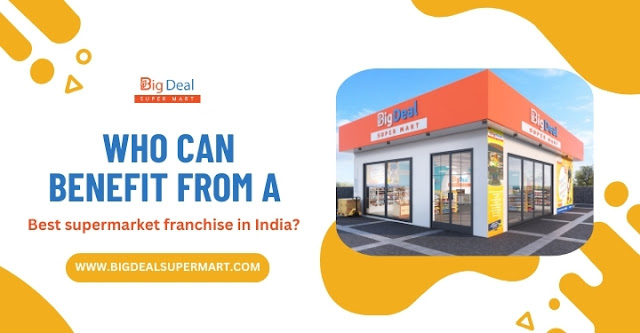What is a Supermarket Franchise?
A supermarket franchise is a business model which enables the entrepreneurs and investors to operate a supermarket by using the brand’s name, operational framework, and systems.
With the brand’s reputation, marketing power, supply chain and support of the franchisees one can establish a well supermarket which services the needs of the community which also reduces the risks which are associated with launching up a new business.
Today, the supermarket business has become one of the worldwide business opportunities as it opens the path of business ownership which also has a well-built customer base.
Understanding the Concept of a Supermarket Franchise
When someone opens the Supermarket Franchise it typically means that they are buying the rights to use the brand’s name, services, products as well its operational guidelines.
In exchange, the franchisees pay an initial fee which typically is based on the royalties based on the profits of the sales.
The partnership with the franchise benefits both franchisee and the franchisor. As, the franchisee gets the support in setting up a business and to run up the business while the franchisor gets to expand its brand with less capital outlay.
Supermarkets are complex, multi-department retail spaces with products ranging from fresh produce and meats to household essentials and specialty items.
They serve as a one-stop shop for customers, and the franchise model allows these supermarkets to reach new locations with less financial strain on the parent company while maintaining consistent brand standards.
Types of Supermarket Franchises
Supermarket franchises vary widely, with different brands focusing on specific segments of the grocery market. The main types include:
Large-Format Supermarkets: These are the traditional, full-sized supermarkets that offer a wide variety of goods, including groceries, household items, and personal care products.
Discount Grocery Stores: Focused on offering lower prices, these stores often have fewer brand-name products and emphasize affordability.
Specialty Supermarkets: Specialize in a particular type of product, such as organic, natural foods, or ethnic groceries, catering to a niche market with specific dietary or cultural needs.
Convenience Supermarkets: These stores are typically smaller and located in high-traffic areas, offering a limited selection of essential items for quick, easy shopping.
Wholesale Clubs: Although less common as franchises, some wholesale club-style stores operate on a franchise model, selling products in bulk at discounted prices.
Benefits of Investing in a Supermarket Franchise
Brand recognition and customer trust: Buying a franchise with an established supermarket brand simply means that you are entering into the market with a recognized name which also makes it easier to attract customers from day one.
In franchise shoppers are likely to visit a store because of the trust they already have which gives an added advantage over independent owned supermarkets.
Operational Support and Training: The franchisors provide additional support to the franchisees which goes from site selection to the day-today operations. The franchisees also receive the guidance in managing the inventory, staffing, pricing products as well as to handle customer services.
Bulk Purchasing and Supply Chain Advantages: The franchises do benefit from the franchisor’s established supply chain which often allows the franchisees to purchase their inventory at much lower costs due to the brand’s buying power. Further, this leads the brands to keep competitive prices and improves the profit margins too.
Marketing and Advertising Support: The franchisees benefit from the marketing schemes which include national advertising, social media, seasonal promotions, and local outreach. This helps to create brand awareness and helps to drive traffic in high scale.
Reduced Risk with a Proven Model: The franchisor has already optimized and tested the business model; the franchisees are working with a blueprint which has proven to be effective and risk free. This can reduce some of the risks associated with starting a new business, as the systems and operations are already in place.
Key Requirements for Opening a Supermarket Franchise
Most of the franchisors have specific requirements which a franchisee must meet to ensure consistency and to uphold the brand’s reputation The requirements are:
Financial qualification: The franchisees must meet certain capital requirements which can demonstrate that they have enough funds for the initial investment so that they can sustain in the business.
Location selection: The location plays a critical role in the success of any business. In this, the franchisors must assist in the site selection and must require approval of the chosen location to ensure they meet the brand standards and can even attract sufficient customer traffic.
Business Experience: Many franchisors prefer a franchisee which has previous experience in business as well as in retail to make sure the store management is effective.
Adherence to Brand Standards: The franchisees must uphold the standard of the brand at every aspect be it in the store appearance or in the product selection or be it in the customer service even. As, this will ensure you provide consistency across all the franchise locations and will even foster trust and loyalty.
Final Thoughts
A supermarket franchise does offer an attractive opportunity for entrepreneurs who are looking to enter retail work with the support of a well-established brand.
By choosing a franchise, owners do gain access to the brand recognition, operational framework and supply chain benefits which makes launching and managing the supermarket easier.
However, franchisees must evaluate the initial investment, franchise agreement terms and ongoing costs to ensure that they align to the business goals and the financial capacity.



Comments
Post a Comment